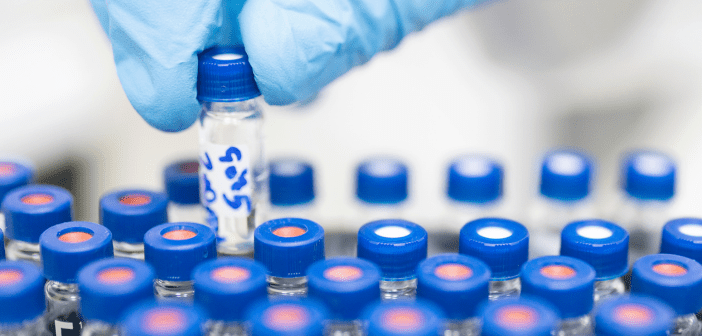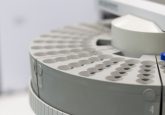Top industry advancements in mass spectrometry

Recently, there have been new technological advancements and research published on mass spectrometry, with several announcements held at the American Society for Mass Spectrometry conference (ASMS, TX, USA; 4–8 June 2023). In this article, we explore some of the latest technological innovations surrounding mass spectrometry and its applications.
Expert Intelligence announces new AI App Builder to aid mass spectrometry analysis
Lalin Theverapperuma, PhD, CEO of Expert Intelligence (CA, USA) stated:
“AI has become the ‘go to’ method for extracting hidden patterns in large datasets or creating human-like interactions. To extend AI into scientific analysis, particularly analysis using mass spectrometry, we’ve designed an entirely new way of building AI that removes complexity and cost.”
The App Builder is an automated platform aimed to replace the need for AI engineering to produce AI applications for mass spectrometry signal analysis, giving scientists an easy-to-use visual AI framework to tackle complex signal data. The App Builder has also been utilized to identify blood cancer cells in a research environment, and has been designed so that scientists can directly create their own AI models for analysis [1].
Read more on how AI can aid testing:
COVID-19 AI testing is finally finding its voice
The glue that holds us together: mass spectrometry uncovers details of protein interactions
Researchers from the University of Birmingham (UK), University of Leicester (UK) and the Eindhoven University of Technology (Eindhoven, The Netherlands) have devised a way of utilizing mass spectrometry to analyze the process of molecular glues ‘sticking’ proteins together. Through analyzing their relative strengths, information about diseases caused by protein interactions falling apart can be learnt, enabling protein interaction to be restored, making the protein function properly.
Dr Peter Cossar, from the Department of Biomedical Engineering at Eindhoven University of Technology elaborated:
“Understanding how molecular glues stick proteins together enables scientists to better design and build the next generation of molecular glue drugs. Mass Spectrometry provides a tool to do so, by providing high fidelity information on how these unique molecules behave in real-time.”
The research team hopes this research will provide a solid framework for testing a wider range of molecular glues, presenting a significant advance in drug discovery understanding in this area [2].
Read more on the use of mass spectrometry for drug discovery:
Infographic: drug discovery in the ultra-high throughput and acoustic ejection mass spectrometry age
LC–MS/MS method for the quantitation of OCT1 biomarker isobutyrylcarnitine in human plasma with clinical sample analysis
The liver has specialized proteins that transport pharmaceuticals in and out of liver cells. It is important to understand if a new pharmaceutical is moved by these transporters because if multiple co-taken pharmaceuticals compete for the same transporter, the plasma concentrations of the therapies can change. This means that one or more of the therapies may become ineffective or even dangerous. Isobutyrylcarnitine, (IBC), is a naturally occurring molecule that circulates in the plasma and whose concentration is reduced when there is competition for the OCT1 transporter. Therefore, IBC is a biomarker for OCT1 competition.
This Preliminary Communication article, published in Bioanalysis, presents the results of a study that developed an assay to help quantitate IBC in human plasma using common laboratory instrumentation. The study evaluates the competition of a new pharmaceutical with the OCT1 transporter by measuring IBC plasma concentrations in early clinical trials [3].
Read more here: www.tandfonline.com/doi/10.4155/bio-2022-0228
Thermo Fisher Scientific unveils new Orbitrap™ Astral™ mass spectrometer
At ASMS, Thermo Fisher Scientific (MA, USA) presented the Orbitrap Astral mass spectrometer labeling it as ‘one of the most significant advancements in mass spectrometry in 15 years’. The latest analyzer combines high sensitivity, deep proteome coverage and fast throughput so that researchers can uncover proteins previously difficult to detect and make more breakthrough discoveries. Additionally, Thermo Fisher explained that this information can be used to identify new clinical biomarkers, discover new diseases earlier and develop new interventions for various conditions from cancer to heart disease [4].
Michael MacCoss, Professor of Genome Sciences at the University of Washington (WA, USA) stated:
“One of the biggest challenges we face studying the human proteome is having too many samples to measure and not enough time.
The Orbitrap Astral mass spectrometer is a true game-changer, offering an unrivaled combination of sensitivity, dynamic range and speed that doesn’t compromise accurate and precise quantitation. With this instrument, we can deliver on the promise of precision medicine much sooner.”
Read more on quantitative analysis using accurate mass spectrometry:
Driving more sensitive and selective bioanalysis using accurate mass spectrometry
References
[1] Technology Networks press release, www.technologynetworks.com/informatics/product-news/expert-intelligence-launches-ai-app-builder-for-mass-spectrometry-analysis-374240
[2] Verhoef Carlo, Kay Danielle, van Dijck Lars et al. Tracking the mechanism of covalent molecular glue stabilization using native mass spectrometry. Chem. Sci. (2023) doi: 10.1039/D3SC01732J, Phys press release, https://phys.org/news/2023-06-mass-spectrometry-uncovers-actions-protein.html
[3] Troop A, Kadar E, Kimoto E, Rodrigues A.D & Holliman C. LC–MS/MS method for the quantitation of OCT1 biomarker isobutyrylcarnitine in human plasma with clinical sample analysis. Bioanalysis. 15(5), 259-268, (2023)
[4] Thermo Fisher press release, https://newsroom.thermofisher.com/newsroom/press-releases/press-release-details/2023/Thermo-Fisher-Scientific-Introduces-Groundbreaking-Mass-Spectrometer-to-Revolutionize-Biological-Discovery/default.aspx






